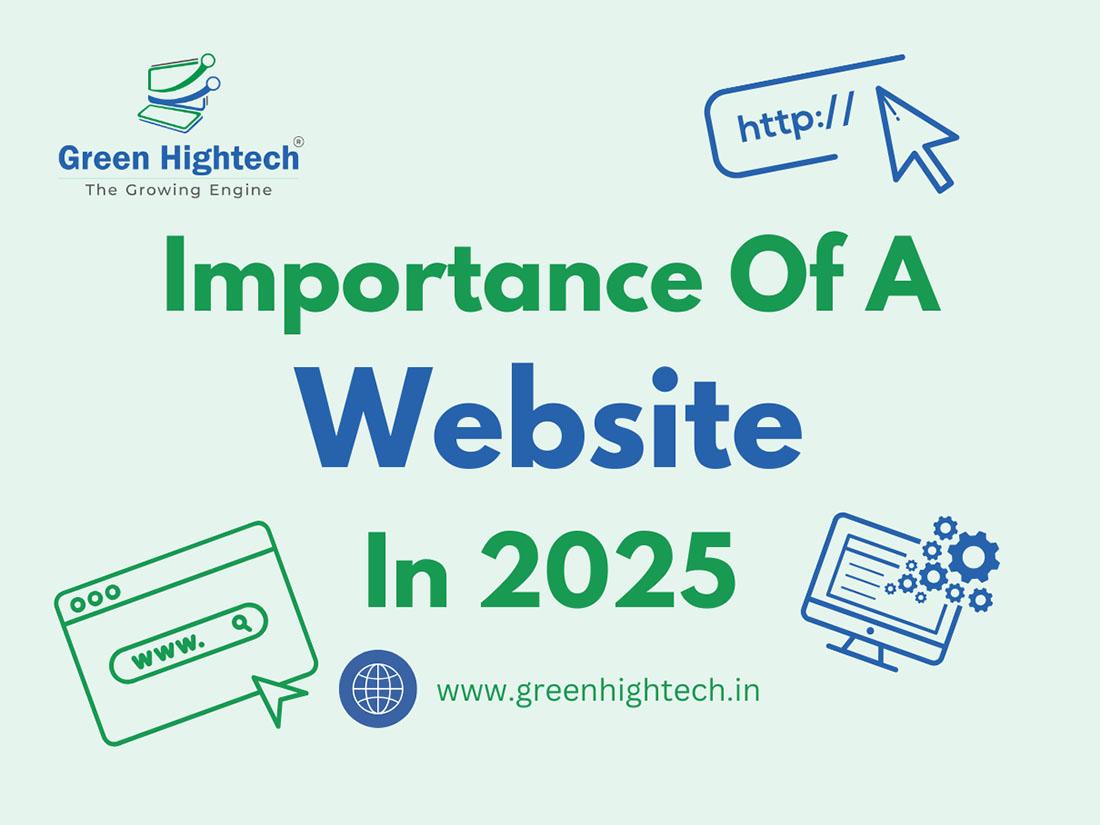Why Your Business Needs a Website in 2025: A Critical Guide
In 2024, over 80% of consumers were influenced by a business's online presence before making a purchase. This statistic highlights the changing landscape where more people rely on the internet for information and shopping. As we move into 2025, having a website is no longer optional; it's essential for businesses of all sizes.
Enhanced Brand Credibility and Authority
- Building Trust Through Professionalism
A well-designed website acts as a digital storefront, projecting professionalism that builds consumer confidence. In fact, 75% of users judge a company’s credibility based on its website design. A professional site tells customers that your business is serious and trustworthy.
- Establishing Expertise and Thought Leadership
Your website can showcase your knowledge through blog posts, case studies, and tutorials. For example, HubSpot uses its website to share valuable content, establishing itself as a leader in marketing tools. This practice not only educates visitors but also builds trust in your brand.
- 24/7 Accessibility and Improved Customer Service
A website makes information available around the clock. Customers today expect quick answers. In fact, 79% of people prefer to find information on their own rather than contacting a company. A website meets this expectation and helps enhance customer satisfaction.
Expanded Reach and Market Penetration
- Targeting a Wider Audience
With a website, your business can reach customers beyond geographical boundaries. For example, a local bakery can sell its products online, attracting customers from nearby towns. This expands market opportunities significantly.
- SEO and Organic Growth
Search engine optimization (SEO) plays a crucial role in driving organic traffic to your site. According to studies, about 93% of online experiences begin with a search engine. By optimizing your website, you improve its visibility, leading to increased visitor numbers.
- Cost-Effective Marketing and Advertising
A website serves as a central hub for marketing efforts. It can support email campaigns, social media, and paid ads, ultimately reducing marketing costs. Instead of spreading your budget thin, a single website can efficiently promote your brand.
Driving Sales and Conversions
- E-commerce Integration
If your business isn't online yet, consider the potential of e-commerce. Companies like Amazon and Etsy generate millions by allowing customers to shop online. Your website can serve as a platform for sales, significantly boosting revenue.
- Lead Generation and Capture
Websites are excellent for generating leads. By using forms, calls-to-action (CTAs), and newsletter subscriptions, you can capture potential customers’ information. These strategies are crucial for nurturing leads into paying clients.
- Data Analytics and Performance Measurement
Website analytics provide insights into user behavior. By monitoring metrics like traffic and bounce rates, businesses can make informed decisions. This data-driven approach helps improve the overall performance of your site.
Staying Competitive in the Digital Landscape
- Adapting to Evolving Consumer Behavior
A responsive and user-friendly website is vital to keeping customers engaged. Mobile web usage has skyrocketed, with nearly 60% of all website visits coming from mobile devices. A well-optimized site ensures a good experience for all users.
- Outpacing Competitors
Without a professional website, your business risks falling behind competitors. Many companies have already established their online presence, making it vital for your brand to stand out. Don’t miss the chance to showcase what makes you unique.
- Future-Proofing Your Business
Investing in a website is essential for long-term success. As tech expert Brian Solis noted, “Every business is a digital business.” Your website lays the foundation for future online growth and sustainability.
Actionable Steps to Website Success
- Choosing the Right Platform
Selecting a user-friendly website platform is important. There are various platforms that offer flexibility based on your budget and needs. Evaluate features and ease of use to find the best fit.
- Content Strategy and Optimization
Create relevant, engaging content tailored to your audience. Utilize SEO best practices, like keyword research and meta descriptions, to optimize your pages. This not only draws visitors but keeps them coming back.
- Website Maintenance and Updates
Regular maintenance is key to a successful website. Updating content, checking for broken links, and ensuring security are vital tasks. This ongoing commitment helps your site remain functional and trustworthy.
Conclusion
In summary, having a website in 2025 is critical for credibility, reach, sales, and competitiveness. The digital landscape continues to evolve, and being online is essential for growth. Take action today—create or enhance your website to secure your business’s future success.
